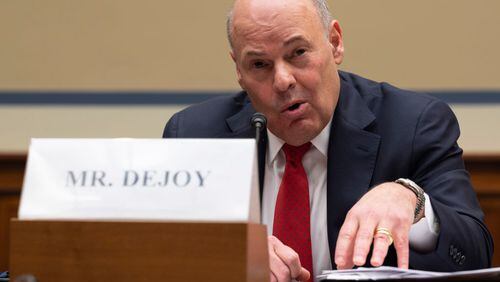The revamped health care bill passed by the U.S. House of Representatives this month will leave 23 million fewer Americans with health insurance by 2026, according to a report released Wednesday by the Congressional Budget Office.
It’s a slightly better number than the GOP’s first plan that failed in March. Under that plan, the CBO found 24 million or more would have lost insurance. That figure stirred protests and played a major role in tanking support for the plan.
The revamped proposal wouldn’t do as good a job lowering the federal deficit as the earlier proposal. The CBO Wednesday projected the new plan would lower the deficit by $119 billion over the next decade. Both plans’ deficit impact is a small fraction of the overall deficit.
Experts cautioned the new plan’s improved number may obscure worse coverage, since the new plan gave health insurance companies more flexibility in covering pre-existing conditions.
Many of those losses come from Medicaid patients. Both bills dramatically cut spending on the federal program, which provides health insurance for the poor and disabled. The CBO estimated that the law would leave 14 million Americans uninsured than would otherwise have been covered by Medicaid.
In Georgia, about 2 million people are currently covered by Medicaid. Several hundred thousand of the very poorest Georgians have no health insurance at all, because Obamacare assumed states would expand Medicaid to cover those people, but Georgia elected not to, citing the cost.
Neither plan is considered viable as a final product. The Senate is now taking up the issue, and pressure is on for the fractured GOP to deliver something palatable its voters across the spectrum: Those who want a cheaper, less intrusive plan that will still enable those who need it to be covered; and those voters who want government out of health insurance altogether.
About the Author








